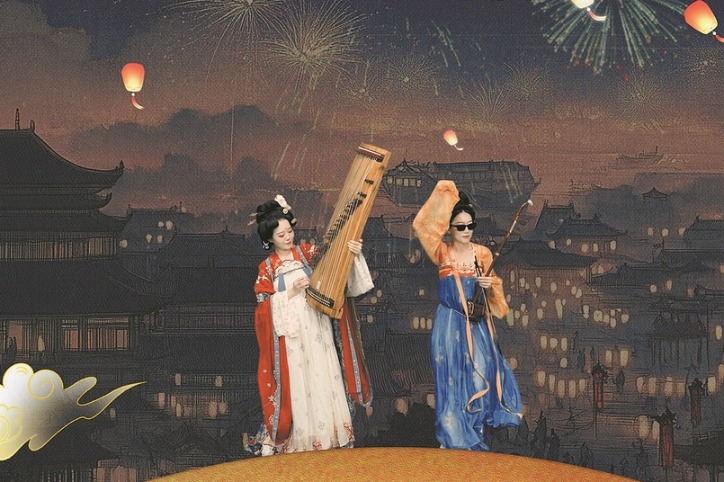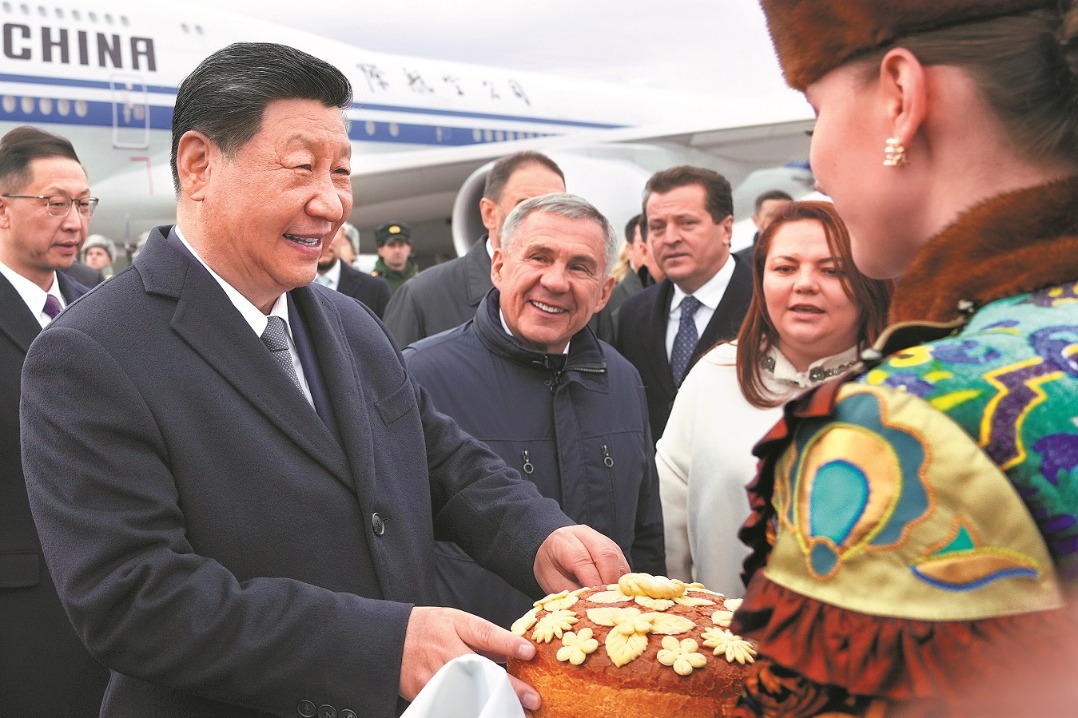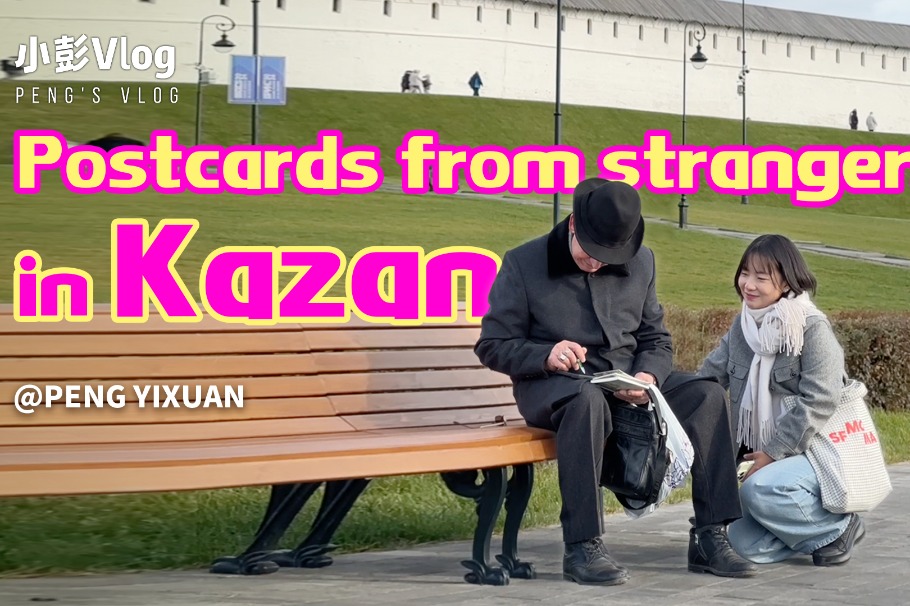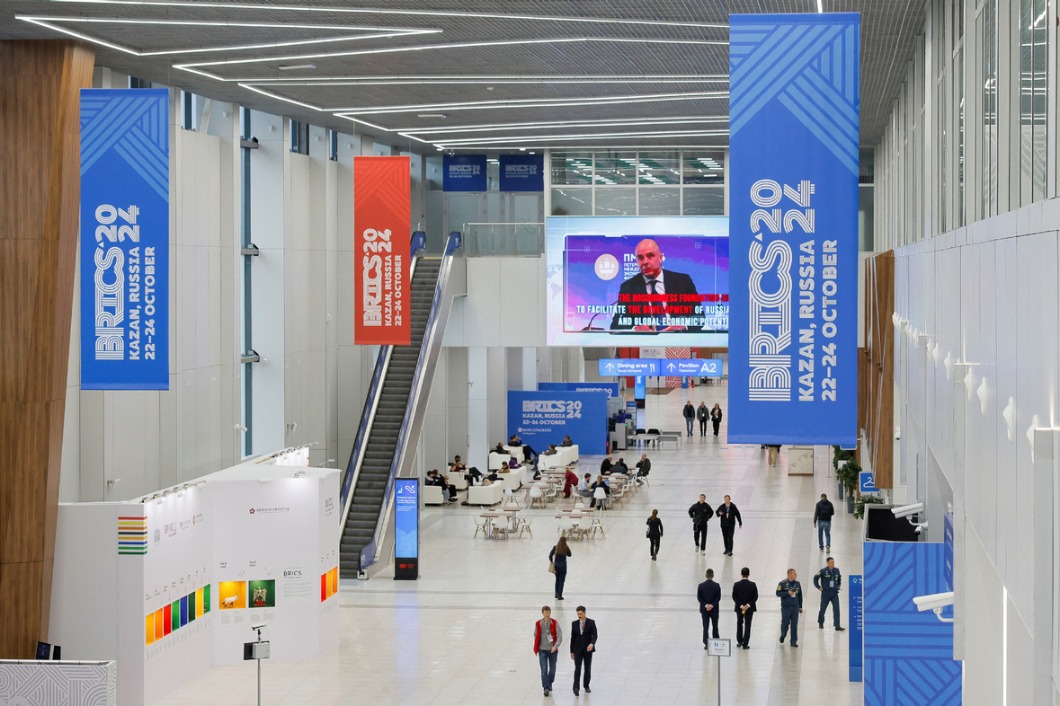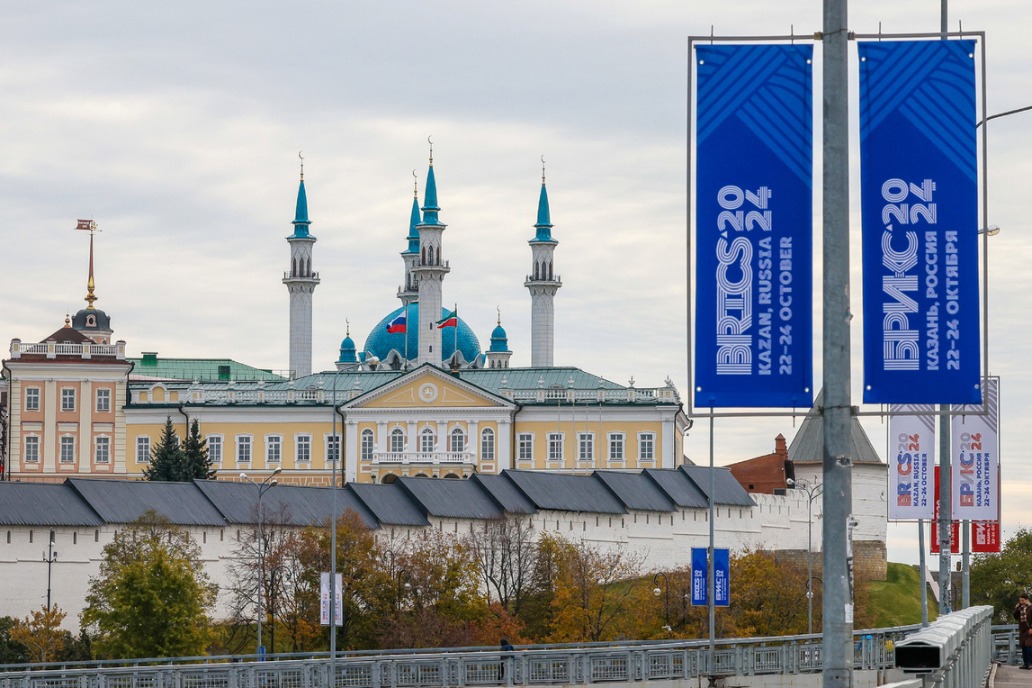Enabler rather than enforcer


Statecraft enables countries to resolve differences not through military force, but through negotiation in which disputants are part of the solution via consensus
In a transforming global order, major countries' roles evolve to reflect the times. Being an enabler rather than an enforcer underlines the difference between the role of a major power in a unipolar world to that within the unfolding multi-nodal configuration.
For much of the past five centuries or so, the global configuration has been anchored by economic relations between major nations and those at the peripherals of the global economic system. As each successive wave of economic expansion took place, we also witnessed the emergence of new centers as old ones gave way. From the times since the city-state economies of Venice and Florence fanned European colonial expansion through the periods of Spanish, Dutch, English and more recently US-led globalization, the major economic powers of the day were also military powers, enabling market access and the ability to extract resources from subordinated peoples and places.
The world wars in the first half of the 20th century saw two transnational institutions emerge that aimed at creating a framework through which global order could be governed, in theory with less risk of warfare than had been the case in previous epochs. The League of Nations was created by the victors of World War I on Jan 10, 1920, but failed in its ostensible mission to prevent further wars and suffering. World War II proved its ineffectiveness. The League was disbanded formally on April 19, 1946, with its powers and functions transferred to the nascent United Nations.
Parallel to the UN, for the non-Soviet bloc, global economic and financial coordination was orchestrated through a myriad of intertwined institutions associated with what became known as the Bretton Woods system, which was formalized in 1944, initially with 44 participating nations. It delivered an international financial order, with countries guaranteeing convertibility of their currencies into the US dollar at a fixed rate, with the dollar convertible to gold bullion. To mitigate the risk of nations pursuing competitive devaluations, the International Monetary Fund was established to monitor exchange rates and act as lender of last resort to nations with balance of payments deficits. In parallel, the International Bank for Reconstruction and Development was created.
Gold convertibility of the US dollar ended in August 1971 when the United States depegged from gold, but the IMF and the IBRD — nowadays known as the World Bank — continue to play pivotal roles in the global economic landscape. However, while these twin institutions were ostensibly charged with the task of enabling global economic development to take place, and systemic imbalances to be addressed, the realities of uneven development and exchange rates continued to dominate the global economic system after World War II.
The IMF's role as lender of last resort has contributed to persistent developing world indebtedness, with debts denominated in the US dollar. IMF loans have consistently failed to live up to their promises when it comes to poverty alleviation. For example, a recent study of loans to 81 developing countries from 1986 to 2016 by US researchers Glen Biglaiser and Ronald J.McGauvran concluded that "IMF loan arrangements containing structural reforms contribute to more people getting trapped in the poverty cycle …"
Rather than enabling countries to develop, the IMF enforced conditions that retarded economic development, reinforcing the uneven exchange that has been at the heart of the global economic system for centuries. Indeed, as Gaston Nievas and Alice Sodano from the World Inequality Lab have pointed out, since the expansion of financial integration and capital liberalization in the 1990s, "the top 20 percent richest countries are capturing more than 90 percent of total foreign wealth" and these inequalities are posing "constraints on the poorest countries". For them, the excess yield accrued by foreign capital is a privilege for the developed world, but for example, for the "BRICS countries the negative return differential constitutes a yearly burden of between 2-3 percent of their GDP".
Global inequality has never gone away, but has emerged with a renewed gusto since the breakup of the Soviet Union in 1991 and the ideological and institutional domination of global affairs by what became known as the "Washington Consensus". US and Western economic domination was buttressed by intensified US military interventions, as demonstrated by Monica Duffy Toft and Sidita Kushi in their 2023 book Dying by the Sword: The Militarization of US Foreign Policy, in what observers have described as the period of US unipolarity.
But the unipolar moment is now coming to an end. Global economic dynamics, particularly due to the rise of China over the last four decades, have transformed the configuration from one in which the US and the West acted as expropriating fulcrum, enforced by the strength of the US military and the omnipotence of the US dollar, to an emergent multi-nodal setup.
Diminished relative economic strength coupled with diluted military preponderance has undermined the capacity of the US and its Western allies to act as global enforcers — either through military interventions or by way of monetized sanctions and assorted prohibitions. The failure of sanctions and the general weaponization of the dollar system in recent years points clearly to the changes that are afoot.
Against this backdrop, the challenge for all nations — and particularly the larger and more influential ones — is to frame their conduct by learning the lessons of the past century. Primacy and unilateral authority no longer exist. The capacity of a small number of nations to expropriate wealth from others is diminishing, as developing countries now have choices for markets and technologies. No single nation can project itself as a global enforcer, by dint of military capabilities. And nor should it.
As enablers, major nations need to activate the tools of multi-nodal statecraft rather than military-backed enforcement. Statecraft focuses on enabling countries to find their own ways to development through collaboration, resolves differences not through military force, but by enabling negotiation in which disputants are part of the solution via consensus, and is committed to the symbiotic relationship between security and prosperity.
The author is an adjunct professor at Queensland University of Technology and a senior fellow at the Taihe Institute. The author contributed this article to China Watch, a think tank powered by China Daily.
The views do not necessarily reflect those of China Daily.
Contact the editor at editor@chinawatch.cn.
















